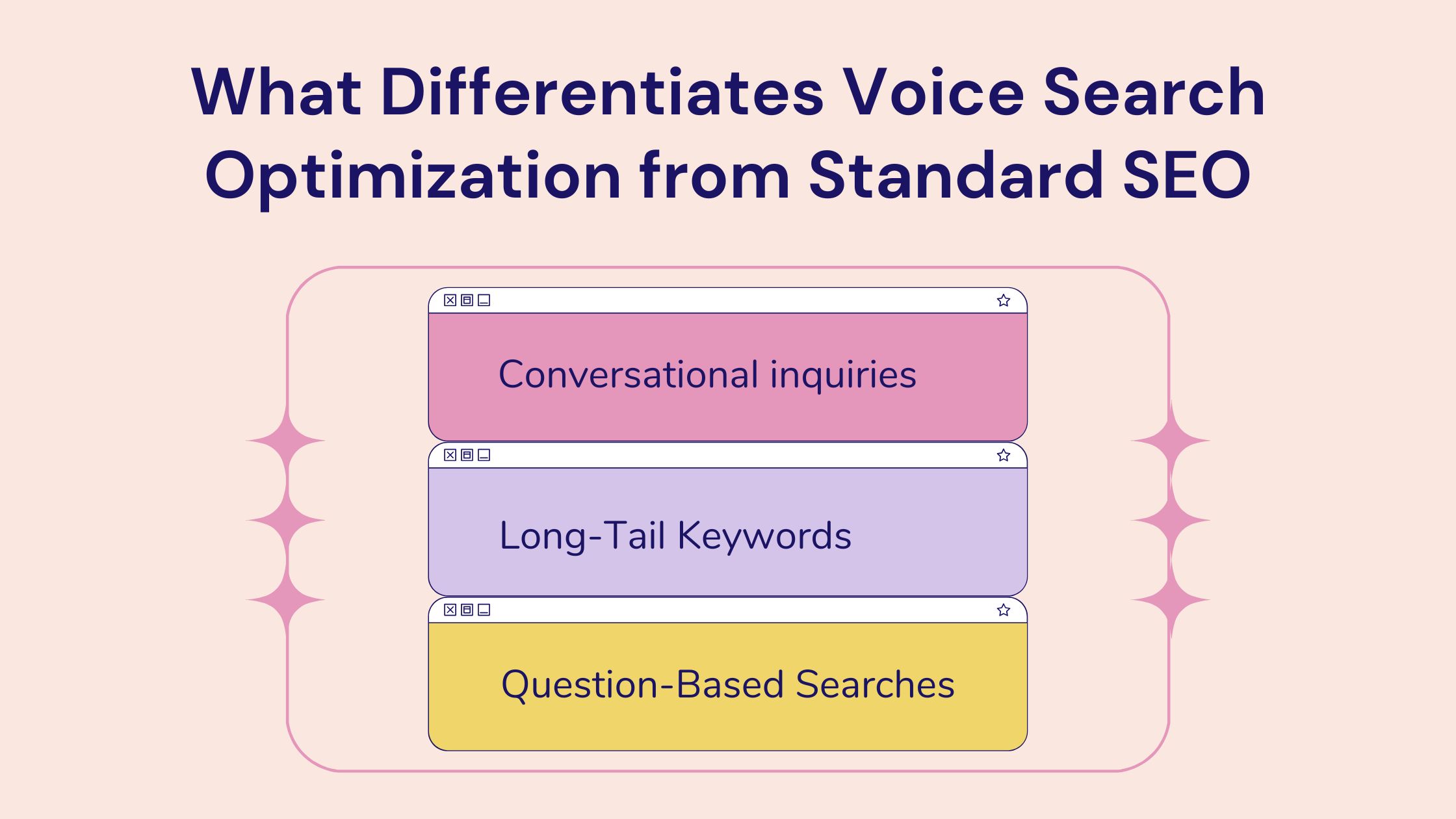Voice Search Optimization: How It Will Transform SEO Practices?
 Woosper
Woosper
Voice search is revolutionizing the digital world by changing how we buy, interact with businesses, and get information. As smart speakers and other speech-activated devices grow, voice search is gaining popularity among consumers due to its speed and ease of use. There is more to this activity than just a trend. Businesses must adjust to this substantial shift in user behavior.
Moreover, this post will go over how voice search optimization affects SEO and how adopting this trend might improve your digital marketing approach.
The Growth of Voice Search

Voice search has expanded rapidly, owing to the growing popularity of smart speakers and virtual assistants such as Amazon Alexa, Google Assistant, and Siri. This surge is reflected in the smart speaker market, which has experienced steady growth in recent years.
According to Statista, it is projected to surpass 200 million unit shipments worldwide by 2024. Users are increasingly using voice commands to find information, make purchases, and interact with brands. This shift in behavior has a huge influence on SEO strategy, as companies need to tailor their content for conversational inquiries. Voice search optimization is becoming increasingly important as part of a strategic digital marketing approach to stay competitive.
Understanding Voice Search Optimization
Voice search optimization is adjusting your website's content to align with how people express their questions to voice-activated gadgets such as Google Assistant. It emphasizes capturing voice search traffic through question-based content, long-tail keywords, and conversational language.
Optimizing voice search is becoming increasingly important for organizations, mainly e-commerce SEO services and top social media marketing companies that want to maintain their lead in search results and enhance user experience.
Why is voice search optimization necessary?
Captures conversational, natural language queries.
Increases visibility in local search results.
Boosts mobile search performance.
Enhances user experience for hands-free interactions.
Improves chances of appearing in featured snippets (position zero).
Drives more traffic for voice-activated shopping in e-commerce SEO services.
Gives businesses a competitive edge.
What Differentiates Voice Search Optimization from Standard SEO?

There are distinctive opportunities and difficulties when comparing voice search optimization with traditional SEO. While both aim to increase a website's exposure in search engine results, voice search optimization necessitates a more advanced approach. This is because voice-based inquiries have unique properties.
- Conversational inquiries: Voice search inquiries are more natural and conversational. Complete queries like "Where can I find the best search engine optimization agency?" are searched by users. Instead of typing fragmented phrases like "best SEO agency."
Long-Tail Keywords: Typically, traditional SEO concentrates on simpler, shorter keywords. Conversely, voice search typically involves longer, more thorough queries, therefore long-tail keywords must be prioritized.
Question-Based Searches: Voice searches sometimes involve questions, although standard SEO mostly concentrates on keyword words. People inquire, "What are some good spas near me?" via voice search. Text search searches are more like "spa near me."
Best Practices for Voice Search Optimization
Following these effective techniques, you can optimize voice search to increase your website's visibility and attract more clients.
Employ Conversational Keywords: Conversation is the key to voice search. Consider the typical speech patterns of humans. To engage consumers, utilize terms that resemble spoken queries in your content.
Craft Question-Based Content: Find out what users are interested in. Make interesting portions of your FAQ that address their questions directly. This boosts your chances of appearing in voice search results and provides valuable information to your audience.
Speed Matters: No one enjoys waiting! Make sure that your website loads rapidly, particularly on mobile devices. A site that loads quickly improves user experience and raises your website's chances of ranking higher in voice search results.
Prioritize Local SEO:

Many voice searches are local, with people requesting suggestions like "near me." Effectively capture this traffic by optimizing your Google My Business listing and adding location-specific keywords.
Target Featured Snippets: Voice assistants frequently use featured snippets to extract replies, so organize the content to take advantage of this valuable space. This is an ideal opportunity to make an impression on search results.
Mobile Optimization: Since most voice searches are conducted on mobile devices, mobile-first SEO is essential.
Use Schema Markup: Search engines can comprehend your content more easily when you use schema markup.
Collaborate with Professionals

Work with the top social media marketing company or the best search engine optimization agency to truly enhance your voice search approach. Their knowledge will enable you to incorporate voice search optimization into your digital marketing strategies easily.
Case Studies
Here are a few case studies of well-known companies that have successfully implemented voice search optimization strategies:
1. Domino's Pizza

Challenge: Domino's sought to enhance their customers' voice search ordering experience as voice-activated devices become more popular.
Solution: In order to expedite the ordering process, Domino's optimized its website and app for conversational searches and introduced a voice ordering function via Amazon Alexa.
Results: This innovation demonstrated how strategic digital marketing can adjust to voice search trends by increasing online orders and consumer interaction.
2. Yelp

Challenge: Yelp wanted to improve the voice search experience for users looking for nearby businesses.
Solution: Yelp focused on local SEO and ensured its listings were accurate to optimize its platform for voice search. To increase visibility in voice search results, they also included structured data.
Results: Yelp's position as a leading source of local information was strengthened with the help of the best search engine optimization agency. The increasing usage of the app and website also contributed to this growth.
3. Sephora

Challenge: Sephora, a cosmetics company, aimed to improve the whole purchasing experience for its voice-activated shoppers.
Solution: Sephora created a voice app for Google Assistant that offers tailored suggestions and optimizes content for speech searches about beauty.
Results: This creative strategy greatly enhanced online sales and consumer contact while adhering to the tactics of top social media marketing companies.
Conclusion
In a nutshell, the emergence of voice search optimization has had a significant influence on SEO's future and changed how people use search engines. Businesses that concentrate on conversational keywords and localized content can increase their online presence and relevancy. As we move forward, incorporating voice search methods into a wider framework of strategic digital marketing will be critical to success. Companies that embrace this transformation will improve the user experience and gain an advantage in an increasingly competitive digital world.
Transform your SEO strategy for the voice search era, reach out to us now for expert guidance!
Subscribe to my newsletter
Read articles from Woosper directly inside your inbox. Subscribe to the newsletter, and don't miss out.
Written by

Woosper
Woosper
Woosper is a brand marketing firm specialising in the development and implementation of comprehensive marketing strategies for companies of all sizes. Our experienced marketing team collaborates closely with clients to determine their distinct brand identity and create targeted campaigns that drive engagement and lead generation.